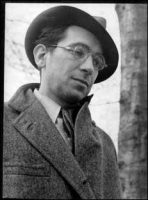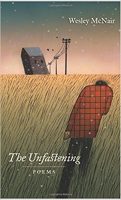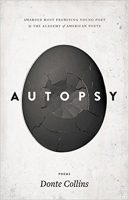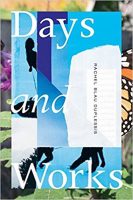July 28, 2017
Edited by David Sanders
Specimen Days
1101—Su Tung-p'o, Chinese poet/essayist/painter/
1456—Jacopo Sannazaro, Italian poet (Arcadia), is born.
1844—Gerard Manley Hopkins, England, poet (Windhover), is born.
1902—Kenneth F Fearing, US, poet (Dead Reckoning), is born.
1927—John Ashbery, American poet, is born.
1929—Remco [Wouter] Campert, Dutch literary/poet/son of Jan Campert, is born.
1950—Shahyar Ghanbari, Iranian poet, is born.

Come back. We will have a celebration to end all celebrations.
We will invite the undertaker who lives beneath us, and a
couple of boys from the office, and some other friends.
And Steinberg, who is off the wagon, and that
insane woman who lives upstairs, and a few reporters, if
anything should break.
—from “Love 20 cents the First Quarter Mile” by Kenneth Fearing
“Come back. We will have a celebration to end all celebrations.” – Kenneth Fearing
World Poetry
Syrian Opposition Poet at Montepulciano's 'Defy the Silence'

Despite the ongoing war, the well-known Syrian opposition poet Rasha Omran said that ''Syria is a country where people think and create, where there is culture and, above all, women who speak and exchange ideas, defying the usual stereotypes about Arab countries''. On Monday evening Omran, who has lived in exile in Egypt since 2012, was guest of honor at the 42nd edition of the Cantiere Internazionale d'Arte di Montepulciano festival in Montepulciano.
Koleka Putuma Is the Groundbreaking New Voice of South African Poetry
South African poet Koleka Putuma is a rockstar. She’s not playing by the rules and her poetry is direct without being cliché. The Cape Town-based poet’s debut anthology, Collective Amnesia, which was released in April this year, was accompanied by visuals—both photography and videos, something you don’t see in South Africa.
”Syria is a country where people think and create.” – Syrian opposition poet Rasha Omran
Recent Reviews
Can Political Poetry Matter?
A recent collection clarifies the difference between effective and feeble political poetry.
by Christopher J. Scalia
At the beginning of the year, just in time for the inauguration of President Donald J. Trump, Boston Review published a poetry chapbook called Poems for Political Disaster. Collecting works by 36 poets, nearly all of which are published there for the first time, the book is a chance, according to the foreword by former U.S. Poet Laureate Juan Felipe Herrera, for “American vision makers . . . to make way through the infamous ‘Wall’ that has been propped up as one of the key symbols of and for the new you—America.” In other words, a chance to complain about American politics, and especially Donald Trump.
Progress of a Master
by Alice Oswald
Robert Nye has been much praised, even adulated, for his novels. I can also recommend his poems: ‘a heron stands/like a sickle dipped in feathers’. This luckily occurs twice in the collection – it’s the best description I know of that strange bird. But I also recommend his poems because of their extreme sensitivity to sound (‘Eurynome, the moon, my madam’; ‘the leaf’s lack such it will quite obey the lie of its luck, this way or that…’) and because they are rhythmical.
Night Sky with Exit Wounds by Ocean Vuong Review – Migration, America and Vietnam
Borders and identities blur in this hotly tipped collection from a young poet who moved to the US as a child
by Sandeep Parmar
It is tempting to read Ocean Vuong’s poetry with his life story in mind. Glimpses of it appear throughout his Forward prize-nominated debut collection, Night Sky with Exit Wounds: Vuong was born near Saigon in 1988 and at the age of two, after a year in a refugee camp, he emigrated to Hartford, Connecticut with six members of his family. Several poems resurrect violence from before the poet’s birth, in particular the end of the Vietnam war with the fall of Saigon in 1975. Complex figures, displaced by war, haunt the book: an absent, tormented father and a beloved mother.
Why W.S. Merwin Endures, and Other Best Poetry to Read this Month
By Elizabeth Lund
The Essential W.S. Merwin (Copper Canyon) beautifully demonstrates why Merwin has been one of America’s most decorated and important poets for more than 60 years. Edited by Michael Wiegers, this concise collection contains the best of the two-time Pulitzer winner’s work, including selections from Merwin’s first book, “A Mask for Janus” (1952) as well as “The Lice” (1967) , “The Carrier of Ladders” (1970) and “The Shadow of Sirius” (2008).
Can Poetry Change Your Life?
Why we are so defensive about the art form’s value.
by Louis Menand
The first eight pages of Michael Robbins’s new book, “Equipment for Living: On Poetry and Pop Music” (Simon & Schuster), make reference to Annie Dillard, Harold Bloom, Bruce Springsteen, Bob Dylan, Elton John, Kenneth Burke, Geoffrey Hill, Kenneth Koch, Adam Phillips, Frank O’Hara, Emerson, Boethius, Nietzsche, Freud, and Miley Cyrus. The book is a collection of mostly previously published pieces, some on poetry, some on pop music, some on both, written, as the names suggest, in a critical style that could be called advanced pop.
A recent collection, Poems for Political Disaster, clarifies just what makes political poetry effective.
Broadsides
Lessons on Male Insecurity (and Indigestion) from Walt Whitman’s Men’s-Health Column
by Dan Piepenbring
In 1858, Walt Whitman, at the age of thirty-nine, was eking out a living as a journalist at the Brooklyn Daily Times, generating thousands of words a week at an unflagging pace. He’d suffered a vague illness he called “sunstroke,” which dogged him with episodes of dizziness for years to come; and critics had variously shrugged and gawped at the first edition of his “Leaves of Grass,” published three years before. Adrift and demoralized, Whitman cultivated a bohemian image and dreamed of reinventing himself as a travelling orator. Instead, that fall, he attached himself to a more mundane endeavor, as the author of a series of advice columns for the New York Atlas on the topic of men’s health.
How Patti Smith Brounght Rock ’n’ Roll to New York Poetry
by Daniel Kane
In a candid interview with Victor Bockris published in 1972, Patti Smith laid out her goals as they related in part to her negotiation with the Poetry Project at St. Mark’s. Bockris seemed particularly interested in highlighting how Smith was “totally ignoring” the downtown literary scene despite her all-access pass to that desirable coterie. Bockris continued pressing Smith on this question by asking her point blank about whether she could actually learn anything from the downtown poets. The answer was an emphatic “no,” in large part because of what Smith argued was the St. Mark’s poets’ inability to perform charismatically and because of what she perceived to be the poets’ boring lifestyles. Name-checking rock ’n’ roll gods including Jim Morrison, Bob Dylan, and the Rolling Stones and identifying Humphrey Bogart as someone she got “excited about,” Smith acknowledged, “I’m not interested in meeting poets or a bunch of writers who I don’t think are bigger than life. I’m a hero worshipper.”
The New Yorker recently pondered male insecurity in Walt Whitman’s men’s-health column.
Drafts & Fragments
Syracuse Sidewalks Get a "Splash" of Poetry
Invisible paintings are revealed in the rain
by Sean Martinelli
You may have walked past one of Syracuse's newest art exhibits this summer without realizing it. "Splash Poetry," a presentation of the Syracuse Poster Project has been featured on the streets of downtown Syracuse since May. The paintings are made using invisible paint and only revealed under rain or a splash of water. The poems are haikus written by local authors.
The Most Anthologized Poems of the Last 25 Years
by Emily Temple
Recently, I spent a few days searching through the contents of short fiction anthologies to figure out the most frequently anthologized short stories of the recent past. The results were useful, and one commenter on that post suggested that it would be interesting to do the same thing with poetry—I agreed, and set myself the task.
Lithub recently listed the most anthologized poems of the last 25 years.
Poetry In the News
Holmes Poetry Prize Goes to Solmaz Sharif

Poet Solmaz Sharif has been selected as the latest recipient of the Theodore H. Holmes ’51 and Bernice Holmes National Poetry Prize awarded by the Lewis Center for the Arts’ Program in Creative Writing at Princeton University. The Holmes National Poetry Prize was established in memory of Princeton 1951 alumnus Theodore H. Holmes and is presented each year to a poet of special merit as nominated and selected by the faculty of the Creative Writing Program, which includes writers Jeffrey Eugenides, Jhumpa Lahiri, Yiyun Li, Paul Muldoon, Kirstin Valdez Quade, James Richardson, Tracy K. Smith, and Susan Wheeler.
Daniel Handler Announces the Winners of the Inaugural Per Diem Poetry Prize
Per Diem Press received more than 1,200 submissions, from locations familiar and startling, near and far and, in one case, fictional. The call for submissions encouraged poets of every stripe to apply, and accordingly the spectrum of poets was boggling: poets of nearly every conceivable age and cultural background and professional status are producing poetry in hitherto unimaginable spans of form, tone and content, including, um, dramatic redefinitions of the phrases “eightish pages” and “in English.” (Binary code, anyone?) I read them all and am forever grateful to be reminded and educated on such a wide spectrum, if a narrow stripe, of the poetical imagination of the species.
New Books
The Unfastening by Wesley McNair
[Paperback] David R Godine, 80 pp., $17.05

In this, Wesley McNair's ninth collection of poetry, readers will find not only the work of a mature poet, but a particular and personal vision of life. Combining sorrow, humor, and joy, the volume asks the difficult question: when faced with conflict and struggle, how do you fasten yourself back down again? Beginning with poems of grief and loss, the book moves to the losses of others: a Japanese war bride whose husband's death leaves her with two young children far from home; a survivalist who talks to deer after his wife of 40 years has moved out on him; an old and failed painter who ropes himself to his windswept roof to view the beauty of coastal islands. The pursuit of beauty, the blessings of nature, the love of a mate, and connections we make with others in the course of everyday life, these are the reigning consolations in the midst of unfastening.
Good Stock Strange Blood by Dawn Lundy Martin
[Paperback] Coffee House Press, 144 pp., $16.95
“Every time I read Good Stock Strange Blood, a new, deepened book awaits me. Which is to say, it’s got trap doors, trick sleeves; it takes swerves, detours, and dives. Dawn Lundy Martin’s poems read like a real-time excavation of what poetry can and can’t do; how the past is never past; how to stand in the blur, the ‘griefmouth’ of personal and collective pain and somehow―against all odds―make thought, make fury, make song. We need this resilience, this bloody reckoning, this wit and nuance, now.”―Maggie Nelson
Autopsy by Donte Collins
[Paperback] Button Poetry, 72 pp., $16.00

Written after the death of his mother, Donte Collins’s Autopsy establishes the poet as one of the most important voices in the next generation of American poetry. As the book unfolds, the reader journeys alongside the author through grief and healing. Named the Most Promising Young Poet in the country by the Academy of American Poets, Collins's work has consistently wowed audiences. Autopsy propels that work onto the national stage. In the words of the author, the book is a spring thaw — the new life alongside the old, the good cry and the release after.
The Easy Body by Tatiana Luboviski-Acosta
[Paperback] Timeless, Infinite Light, 114 pp., $20.00
The Easy Body is a love letter from hell. In these poems, a fiery account of loss combines with a multi-lingual prophecy of stained, stunning beauty. In deep suffering and impure solidarity, the Latinx, matrilineal, colonized body of this text will never be 'easy.' Get ready for the birth of a riot and the death of the world.
Days and Works by Rachel Blau Duplessis
[Paperback] Ahsahta Press, 96 pp., $18.00

Following the 26-year poetic odyssey of her long poem Drafts, Rachel Blau DuPlessis invites readers, with Days and Works, to embark with her on not just one but a plurality of voyages. In 2014, drawing on a 1914 translation of Hesiod's Works and Days appearing at the beginning of World War I, DuPlessis began to write, bent on dealing—as did Hesiod—with the insoluble oddity of being in the world and in our time. Both works are built of evocative awe and practical "life" advice, in which conflicting sensations of the textures of historical time, personal time, cosmological time all fold together, in all their contradictions and vectors of stimuli—desired and painful. DuPlessis's work, with rips of feeling, newspaper clippings, and senses of historical fate, represents the oddity of all these registers involving us in different emotional twists.
Donte Collins’s Autopsy establishes one of the most important voices in American poetry.
Correspondences
What I Think: Paul Muldoon
by Jamie Saxon
The son of a market gardener and a schoolteacher, Paul Muldoon grew up near a village called The Moy on the border of Counties Armagh and Tyrone, Northern Ireland. The oldest of three children, he describes himself as “a bit of an eccentric child, a little bit of the family mascot” who was given privileges such as his own tiny room, where he spent hours as a teenager reading and writing poetry. After studying at Queen’s University, he worked in Belfast as a radio and television producer for the BBC and moved to the United States in 1987. His most recent book, “Selected Poems 1968-2014,” published in November 2016, draws from 12 previous books of poetry, including the Pulitzer Prize-winning “Moy Sand and Gravel.” He has served as the poetry editor of The New Yorker since 2007. These musings are from an April 26 interview, and Muldoon reads two poems from his recent collection in the accompanying videos.
An Interview with Michael Hofmann
by Henry Ace Knight

Michael Hofmann’s arch figurations of the translation process seem almost as prolific as the nearly 80 books he has rendered into English from the German. For him, the act is imagined as: literary carbohydrates; the Rubik's cube; a chocolate contaminated by its manufacture in a facility hosting peanuts; an immigrant ("the need to 'pass'"); shaking a little ball from A to B; “turning out my pockets, Schwitters-style, a bus ticket, a scrap of newspaper, a fag packet, a page torn out of a diary”; (or, in the case of a poem) “the bundled-up corpse of an insect that’s got caught in a spider’s web, an overzealous parcel, attached by a thousand threads to the thing that will wait for it to die and then eat it.”
Interview with Anne Carson
by Željka Marošević
Throughout her prolific career as a poet and a translator, Anne Carson has been concerned with combatting what she calls ‘the boredom of storytelling’. As she explained to Michael Silverblatt on stage at an event last year, ‘When your thinking is still, watching TV or whatever, thinking the same thing you’ve always thought, you might as well be dead… Living happens when your thought moves.’ To read Carson is to feel the parameters of poetry, translation and story-making move and unsettle. Or, to borrow a phrase of Carson’s, to watch someone ‘undo the latches’ of ordinary understanding.
Michael Hofmann has translated nearly 80 books into English from the German.
Envoi: Editor’s Notes
Anth(rop)ologies
The article above about the most anthologized poems of the last quarter century is fascinating. I am not able yet to process what it might mean or even point to as a record of our place in time, but it is an interesting snapshot nonetheless of what we collectively have deemed enduring, important, and representative of our art in this age. Take a look and see if it confirms or not your own inclinations about the relative status of the poems listed. I often will, when I come across an anthology from the first half of the twentieth century, peruse the table of contents and compare the predications embedded there with how it all played out.
Poetry News in Review editor David Sanders on the anthropology of anthologies.